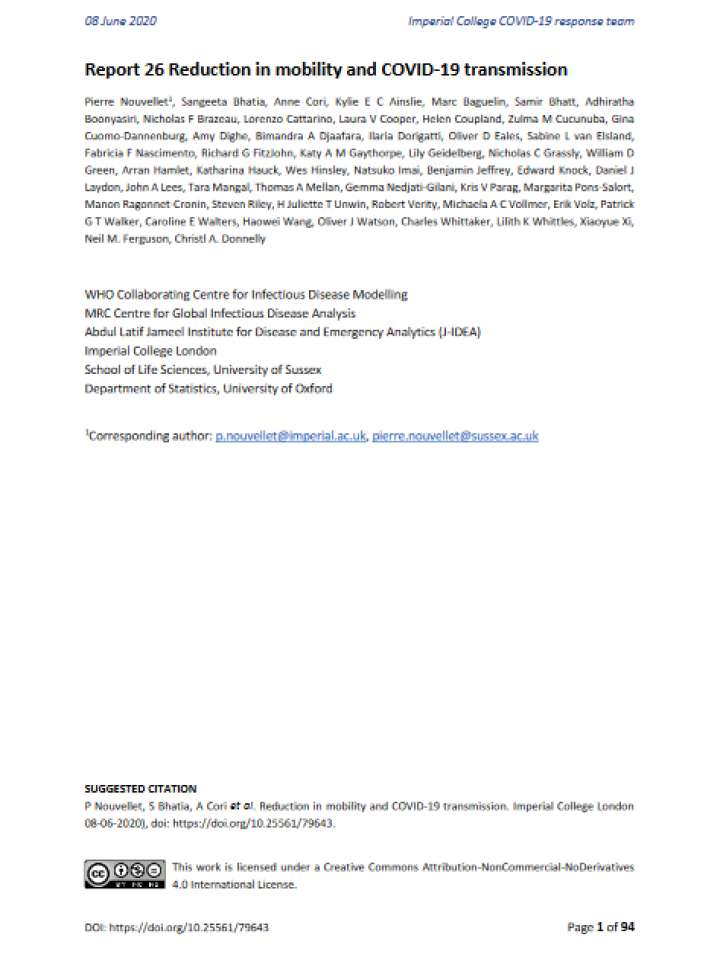Report 26 - Reduction in mobility and COVID-19 transmission
In response to the coronavirus disease 2019 (COVID-19) pandemic, countries have sought to control transmission of SARS-CoV-2 by restricting population movement through social distancing interventions, reducing the number of contacts. The authors developed a framework to infer the relationship between mobility and the key measure of population-level disease transmission, the reproduction number (R). The framework is applied to 53 countries with sustained SARS-CoV-2 transmission based on two distinct country-specific automated measures of human mobility, Apple and Google mobility data.
This study finds that while social contacts were sufficiently reduced in France, Spain and the United Kingdom to control COVID-19 as of the 10th of May, enhanced control measures are still warranted for the majority of countries. Easing social-distancing restrictions should be considered very carefully, as small increases in contact rates are likely to risk resurgence even where COVID-19 is apparently under control. The authors conclude that gradual easing of restrictions must be accompanied by alternative interventions, such as efficient contact-tracing, to ensure control.
Explore further
